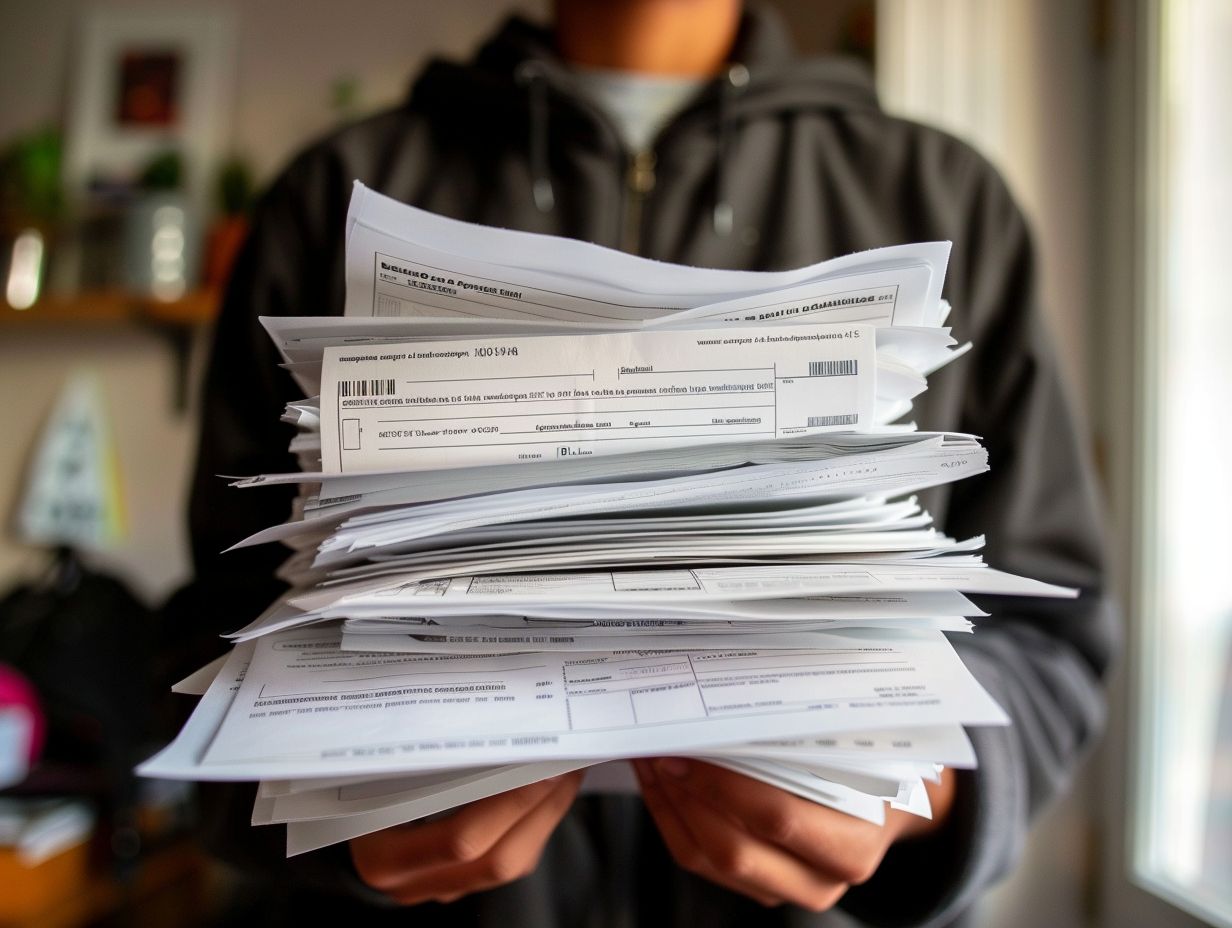When you’re immigrating to a new country, you’re diving into a complex and challenging process where having accurate documentation is key for your application.
Let’s dig into the world of immigration applications and see just how vital documentation is, stressing the importance of accuracy and pointing out some common mistakes you should steer clear of.
You’ll want to get familiar with the different types of documentation you need, pick up some tips on how to prep and submit everything accurately, and understand the repercussions of any inaccuracies.
Make sure you have the right resources to help you with your immigration documentation so you can sail through the process smoothly and successfully.
What is Immigration Documentation?

When you’re dealing with immigration, you’re going to need all the right paperwork and documents to back up your applications for things like visas, work permits, or even a shot at permanent residency.
These documents are like your golden ticket in the immigration process, showing that you’re eligible and following the rules. You’ll need stuff like passports, birth certificates, marriage certificates, employment letters, bank statements, and proof of where you’ll be staying.
Each document has a job to do, from proving who you are to showing your skills and why you’re heading to the new country. By handing over all these documents, you’re basically saying, “Hey, I’m here to play by the rules and do things the right way,” which is key for a smooth immigration journey.
The Role of Accurate Documentation in Immigration Applications
In your immigration applications, accurate documentation is key. It’s the proof you need to show you’re eligible and following all the legal requirements.
This way, your visa process can move along smoothly and efficiently.
Why Accuracy is Crucial
In immigration documentation, accuracy is key because it directly affects your legal status and the outcome of your application. If you don’t provide accurate information, you could face delays, rejections, or even legal trouble. Immigration officers rely heavily on the details you provide to make decisions about your application.
Even small errors like misspelled names or wrong dates can cause major setbacks. Inaccurate information could catch the officer’s attention, leading to more scrutiny or suspicion. By following submission guidelines and double-checking all your details, you show that you value honesty and compliance, which can improve your chances of a successful immigration process.
Common Mistakes to Avoid
In terms of immigration documentation, you want to steer clear of common mistakes like missing application deadlines, jotting down incorrect details, or forgetting to proofread your forms.
Many applicants tend to skip over the crucial step of double-checking their completed application forms before hitting submit. One of the top blunders is either forgetting to sign where necessary or leaving out vital information. These slip-ups could cause delays or even lead to your application being turned down. To avoid this, make sure you set aside enough time to carefully review each part of the form. Keep an eye out for things like spellings, dates, and signatures. It’s always a good idea to get a second set of eyes to catch any missed errors before wrapping up your paperwork.
Types of Documentation Required for Immigration Applications

When applying for immigration, you’ll need to gather a bunch of documents like immigration forms, supporting papers, proof of who you are, and evidence of where you live. These are all needed to meet the legal requirements for your application.
Key Documents and Their Purpose
In your immigration application, make sure you have all the key documents handy. You’ll need identity proof, supporting documents, and specific application forms, and each of them plays a crucial role in verifying your eligibility and identity.
Your identity proof is like your backstage pass—it shows exactly who you are and ensures that the information provided matches up. Supporting documents are your evidence buddies, backing up all the claims you’re making in your application, whether it’s about your financial stability or your family connections. And those specific application forms? Think of them like the blueprint for your application, helping you organize and present all the necessary info to the immigration authorities.
Without these crucial documents, your application might lose some credibility, making it tough for the authorities to properly assess and approve your request for immigration. So, don’t forget to gather all your documents before diving into the immigration application process!
Tips for Preparing and Submitting Accurate Documentation
When you’re getting your paperwork together, be sure to stay organized, check off everything on your document checklist, and give it a good once-over to make sure all the info is there and looking sharp.
Best Practices for Document Organization and Review
In terms of organizing and reviewing documents, you want to make sure you’re on top of things. Keep detailed records, set up a methodical filing system, and do regular check-ins to make sure all your documents are up-to-date and correct.
One smart move is to categorize your documents by importance or relevance. This way, you can easily find what you need in a pinch. And hey, why not digitize those piles of paper to cut down on clutter and make everything more accessible? Don’t forget to keep metadata updated and label your documents accurately – it’ll make reviewing a breeze and keep everything nice and organized.
You’ll also want to establish clear naming conventions for your files and folders. This helps avoid confusion and makes it simple to track any changes over time. By following these strategies, you can boost efficiency and accuracy in managing your documents.
Consequences of Inaccurate Documentation

If you have inaccurate documentation, you could be facing some serious issues. This might mean delays in your application process, denials, or even extra headaches during the verification process done by the immigration officers.
Potential Delays and Denials
Potential delays and denials in your immigration applications often happen because of incomplete or inaccurate documentation. This can really mess with how long it takes for your application to get processed and the overall outcome.
If you miss important forms or forget to sign something, your application could get rejected or stuck in limbo, making the already stressful immigration process even more drawn out. Not having enough proof of financial support, like incomplete bank statements or inconsistent income proof, might make immigration authorities start asking questions and slow things down even more. Plus, messing up translations or not providing certified translations can throw a big ol’ wrench in the gears. That’s why having a solid document checklist is key to avoid these common pitfalls and keep your application process running smoothly.
Resources for Assistance with Immigration Documentation
You have plenty of resources at your disposal when it comes to immigration paperwork. Whether you turn to immigration consultants, legal help, or professional documentation services, they can all make sure your paperwork is spot-on and good to go.
Where to Find Help and Support
In terms of immigration documentation, getting help and support is crucial. You can rely on immigration consultants, legal assistance, and specialized services for document authentication and verification.
Immigration consultants are pros at guiding you through visa applications, green card procedures, and citizenship paperwork. Legal assistance helps you wrap your head around tricky immigration laws and ensures all your documents are filled out correctly and submitted on time. And let’s not forget about specialized services like translation agencies, which can help translate foreign documents and make sure they meet immigration requirements.
By tapping into these resources, you can breeze through the immigration process and boost your chances of snagging that desired immigration status.
Frequently Asked Questions

What is the significance of accurate documentation in immigration applications?
Accurate documentation is crucial in immigration applications because it provides the necessary evidence to support an application and increases the chances of approval.
What types of documents are considered essential for immigration applications?
Some essential documents for immigration applications include passports, birth certificates, marriage certificates, employment letters, and financial records.
Why is it important to ensure all documents are up-to-date and valid?
Outdated or invalid documents can lead to delays or even denial of an immigration application. It is essential to ensure all documents are current and accurate to avoid any issues.
How can inaccurate documentation affect an immigration application?
Inaccurate documentation can result in the rejection of an immigration application or even lead to legal consequences. It is crucial to double-check all documents for accuracy before submission.
What are some common mistakes people make in their immigration documentation?
Some common mistakes include missing or incorrect information, outdated documents, and failure to provide necessary supporting evidence. It is essential to pay attention to detail and review all documents thoroughly.
Can hiring an immigration lawyer help with accurate documentation in immigration applications?
Yes, hiring an experienced immigration lawyer can significantly improve the accuracy of your application documents. They can also provide guidance and advice on the types of documents required for a successful application.